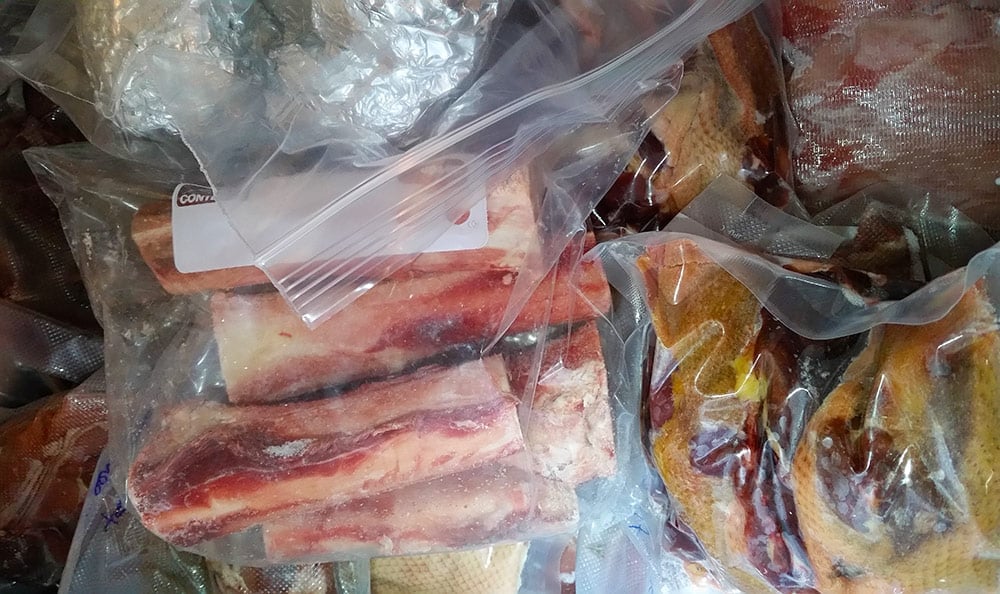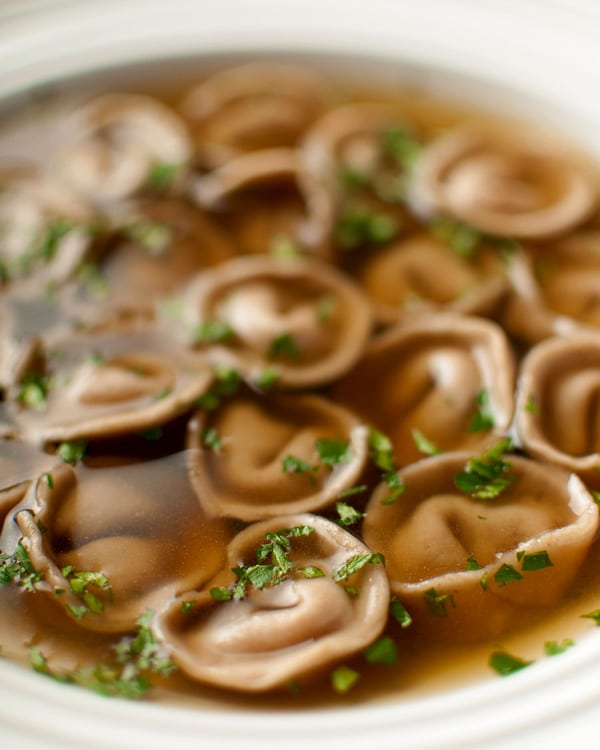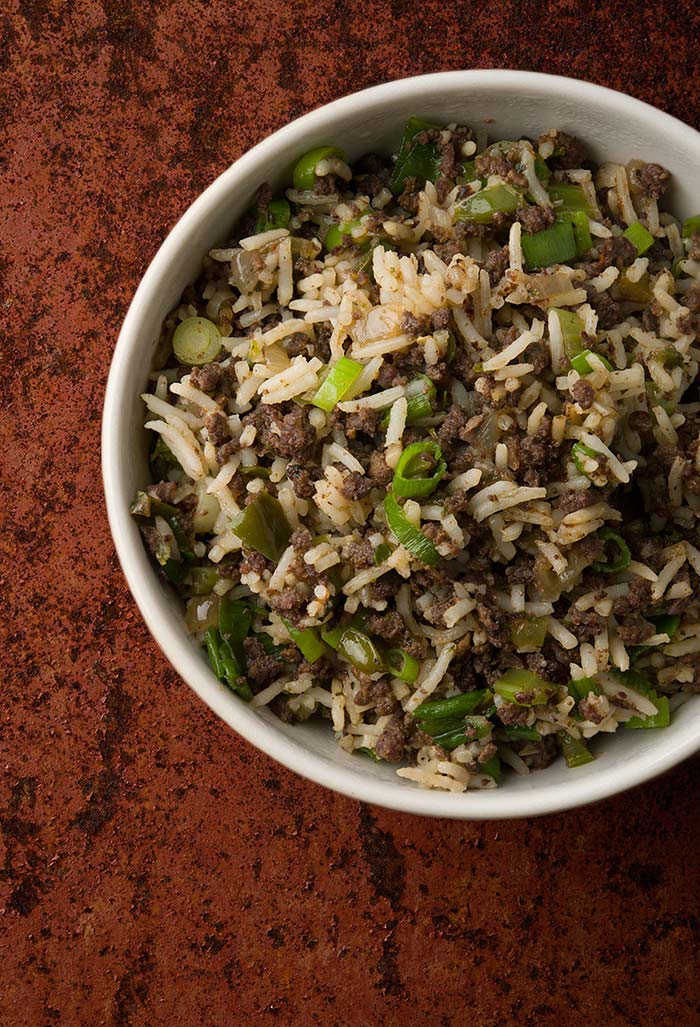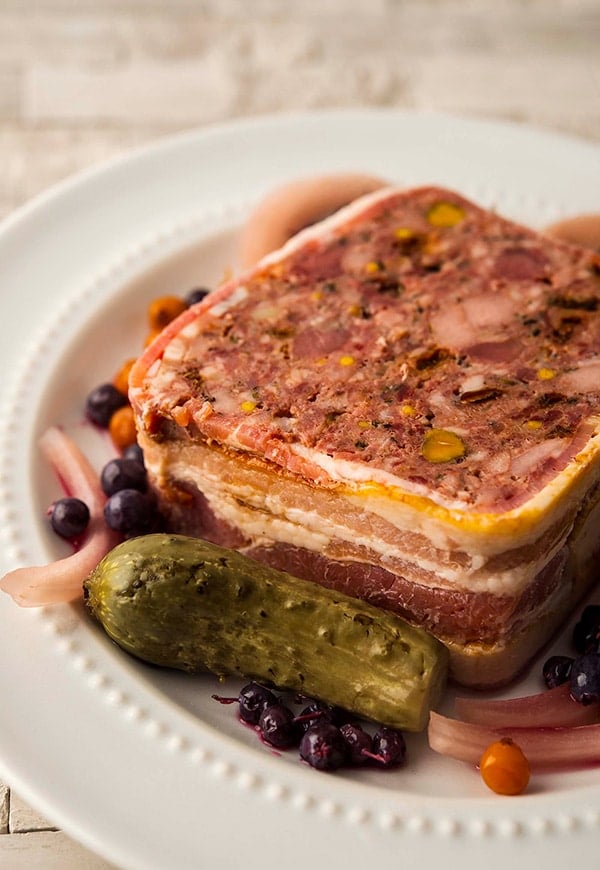How to Save Burnt Ground Beef

A single duck breast. A packet of quail hearts. A deer tongue. A bag of stems of… something? Fish fillets from the Bush Administration. An elk roast older than your dog. Sigh. This is what freezer debris looks like, a sad tale of freezer burn meat.
The detritus lurking in the dark, desolate corners of your kitchen freezer, or even more remote, your chest freezer, covered in ice crystals, is beginning to emerge the way mammoth tusks do as the Siberian permafrost goes the way of, well, mammoths.
Freezer burn meat happens to everyone. A vacuum sealed bag breaks its seal. A hunk of fish or beef outlasts the protection that plastic wrap and butcher paper once offered. Or, a previously careless moment is revealed: You meant to use that piece of chicken loose in a plastic bag on the weekend, but forgot. Now which weekend was that?
But even beyond freezer burn, most of you reading this, hunters and anglers especially, will find yourself in possession of antediluvian meat from time to time. Here are some ideas to make decent use of meat, fish and vegetables well past their prime.
Let's start with the obvious question some of you will have: Yes, the meat or fish or whatever will be perfectly safe to eat. There is no food safety risk eating cryo-frozen food. Hell, scientists have been known to dine on Ice Age mammoth meat and live to tell the tale.
That said, ancient frozen meat can range from, "Huh, pretty much tastes like fresh," to "Um… let's never do this again."
A general rule on if you can predict whether your years' old meat will be OK for a normal recipe is 1) if it has been vacuum sealed, and 2) that the seal has not broken. If both are true, then it'll be perfectly fine, no special handling needed. I once cooked a five-year-old antelope roast that was indistinguishable from a roast frozen a week before.
So OK. You actually have freezer burned meat. Now what?
Easiest is to slice off the freezer burned portion and feed it to the dog or cat. They are typically less picky than you are.

Another option is to use the freezer burned portions in stock or broth. I once made an outstanding batch of venison stock using only freezer burned portions, plus a random leg bone. The same thing works for old shrimp or crab shells. Both will lend what goodness they still possess to aseafood stock.
Oh, and those random leek tops or mushroom stems? They go into the stock, too.
I can hear you thinking. "Hey Hank, well, OK, so I sliced off the freezer burned bits. That leaves me with all kinds of cut up hunks of things. What now?
I'll tell you what now. While there are all sorts of possibilities — make it into stew meat, add it to the stockpot along with the freezer burn meat, kebabs, fish pate, rillettes, even stir-fry — the two I gravitate towards most involve the grinder.
First and foremost, you can simply grind up what's left and eat it as hamburger meat, meatballs, meatloaf, etc. But if the meat you are grinding is super lean, I'd suggest making ground venison jerky, or ground [whatever] jerky.
If it's fish, you have the makings for German fish balls. If it happens to be tuna, try making Sicilian tuna meatballs.
Another great option for freezer debris is a game terrine. Or its country cousin, pâté. These are not overly difficult to make, and will make you and everyone around you feel fancy. And we all need a little fancy these days.

Most of these options also work very well for accumulated giblets. I for one seem to accumulate bags of them every duck season, and for those of you who hunt larger animals, the hearts and livers and tongues and kidneys can pile up. (Admittedly, this is not a problem non-hunters tend to have.)
Two great things that will burn through lots of giblets of any bird, or rabbit, for that matter, are Cajun dirty rice, and boudin. Both can be made with the gnarly bits from larger animals, too.
Finally, there is the issue of ancient fruit and vegetables.
I once found myself in need of freezer space, and to make that space I hauled out two large bags of wild plums. I am not certain what my original intention was for them, but in their withered, icy state I decided the only right thing to do would be to ferment them. And I did, making a lovely dry plum wine.

Not a drinker? Make it anyway, then add either a splash of live vinegar (like Braggs ) or a vinegar mother, or hell, let a few fruit flies wander all over it. You'll get vinegar eventually.
More or less any fruit can go through this process. If they are not too awful, you can puree the fruit for fruit leather, or make some sort of jam, jelly or preserve; I do not eat such things, so I am no help to you here.
As for vegetables, I always either toss them into the stockpot, or, if they aren't the sort of vegetable you'd want cavorting with a proper broth, ferment them, too. Cabbages, I am looking at you.
At some point you will find your own equilibrium with freezer debris and actually look forward to the spring cleaning of your freezers. It can mean one last round of game stock, a week's worth of chopped meat, a batch of boudin or dirty rice for weekday lunches.

Or maybe, just maybe, your freezer burn meat can transform itself into the most wonderful thing of all, that fancy terrine. Easter or Mother's Day lunch never had it so good.
Too daunting? That's OK. It was for me, too, at first. You'll get there.
Source: https://honest-food.net/freezer-burn-meat/

0 Response to "How to Save Burnt Ground Beef"
Post a Comment